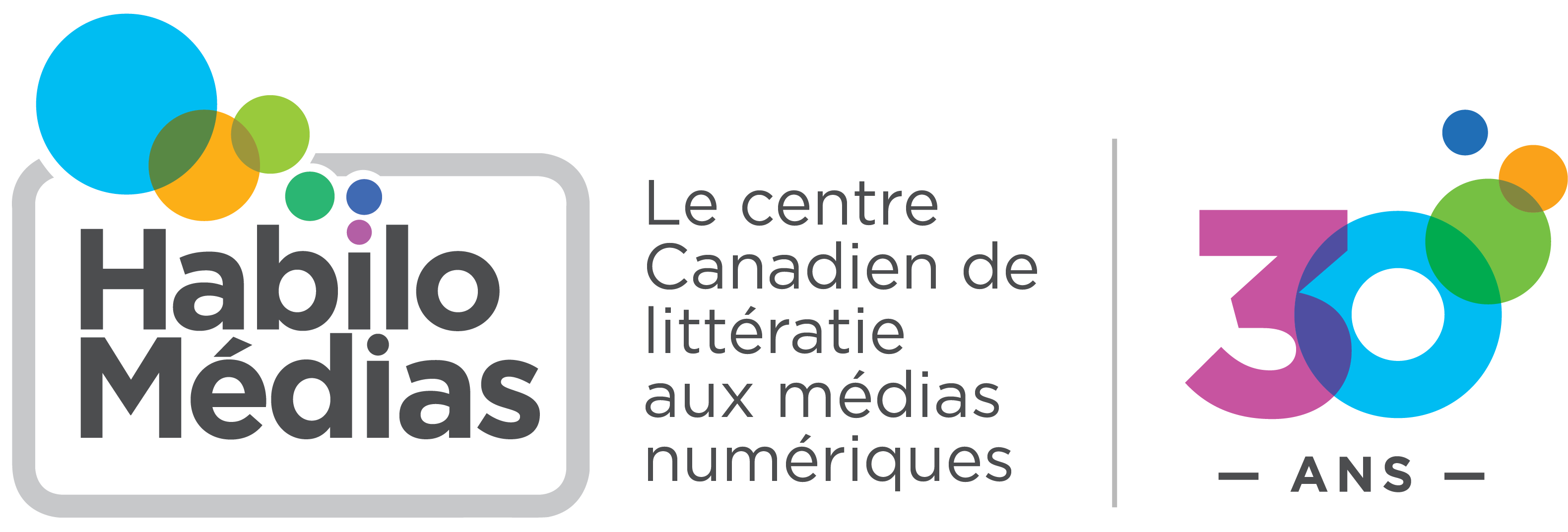 One of the great achievements of the Internet has been to put all kinds of information at the fingertips of millions of people. From online encyclopaedias to search engines, some of the most successful online services have been ways of providing answers to people's questions. It's not surprising, then, that more and more young people are relying on the Internet to answer their questions about that most uncomfortable of topics: sex. Some people, in fact, have even suggested that the Internet makes those awkward, politically troublesome sex ed. classes irrelevant. In the age of Google, is sex ed. necessary?
One of the great achievements of the Internet has been to put all kinds of information at the fingertips of millions of people. From online encyclopaedias to search engines, some of the most successful online services have been ways of providing answers to people's questions. It's not surprising, then, that more and more young people are relying on the Internet to answer their questions about that most uncomfortable of topics: sex. Some people, in fact, have even suggested that the Internet makes those awkward, politically troublesome sex ed. classes irrelevant. In the age of Google, is sex ed. necessary?
Teens going online
As shown in MNet's study Young Canadians in a Wired World, young people turn overwhelmingly to the Internet when they need information – so it's not surprising that it's their preferred source when it comes to sex. As Dr. Vyta Senikas, associate executive vice-president of the Society of Obstetricians and Gynaecologists of Canada, told The Globe and Mail, “It's a medium that adolescents are extremely comfortable with and it's a limitless resource."
Others point to the anonymity of the Internet as its main advantage. Rana Barar, program manager for the Web site sexetc.org (sponsored by Answer, a Rutgers University-based sexual education organization), told the Globe "It's an opportunity for teens to ask the questions they're not getting answered in their sex ed. classes or by their parents."
Getting rid of sex ed.
If the Internet does spell the end of sex ed. in schools, it may not be widely mourned. Its place in the classroom has always been shaky, with two forces working against it: money and politics. Money is a constant issue in schools, of course, and there is always pressure to remove subjects that may be seen as “frills” and get back to the core curriculum. In Quebec, for instance, education about sex has been eliminated as a specific subject, with teachers being asked to find ways to work it into other subjects. Even in places where sex ed. remains on the curriculum few teachers are specifically trained in it -- training teachers takes time and money, commodities which are always in short supply. As well, political forces are often trying to remove sex ed. from the classroom. In the United States, the Bush administration has been working to replace comprehensive sex education with classes that promote only abstinence. With few answers coming from school or their parents, it's not surprising that youth go online to get information about sex.
State of sexual knowledge
Unfortunately, there's little evidence that this self-directed learning is paying off. A national study of the prevalence of sexually transmitted disease among girls and women, carried out by the U.S. Centers for Disease Control and Prevention, showed that one quarter of American women surveyed are infected with at least one disease; legislators in Florida, meanwhile, agreed to consider a bill requiring comprehensive sex education in schools after hearing that many young people believe that Mountain Dew is a contraceptive and that drinking bleach can prevent AIDS. The Internet is, of course, a treasure trove of information of all kinds. The problem is the kinds of information youth are finding there; for the most part it's still true that, as the musical Avenue Q memorably put it, “The Internet is for porn.”
Media and sex
Of course, young people aren't only getting messages about sex from the Internet. A recent study, funded by the National Institute of Child Health and Human Development and performed by the School of Journalism and Mass Communication at the University of North Carolina at Chapel Hill, took a wide-ranging look at the relationship between media messages and the sexual health of teens. Looking at movies, TV, music, Web sites and magazines, researchers examined both the number of sexual messages youth were receiving and the content of those messages.
Researchers suggested that for most teens, the media is their primary (or only) source of sex education, acting as, in their words, a “sexual super-peer” – providing models of sexual behaviour that present it as idealized and free of consequence. Unlike sex education from schools or parents, the sexual messages in the media are not only available but are, in many cases, nearly unavoidable (57 per cent of R&B lyrics studied contained sexual material). So even when not encountering actual pornography, teens are getting powerful and often unhealthy sexual messages from the media.
“The Juno Effect”
Much discussion has occurred over the last year about the so-called “Juno Effect” – whether or not the movie Juno, in which a pregnant teen chooses to carry her child to term and give it up for adoption (with happy endings for everyone) has caused a rise in teen pregnancy, or at least an acceptance of it as something normal. More recently, the new TV show The Secret Life of the American Teenager began with its 15-year-old protagonist discovering she is pregnant. Despite the importance of the pregnancy to the storyline, however, it is not shown whether she had ever discussed contraception at school or at home, or considered using it during her brief fling at band camp (a locale that is a wink and nod to the American Pie movies – showing that the show's creators expect its teen viewers to be familiar with an R-rated sex comedy).
Another well-known example, this time drawn from real life, is Jamie Lynn Spears, who admitted to being pregnant at 16, in 2007. Readers of celebrity magazines can rest easy, though: as star of Nickelodeon's Zoey 101 and sister to Britney, it's unlikely that she'll suffer the same problems – ostracism, reduced odds of finishing high school, and poverty – that researchers such as those at the Alan Gutmacher Institute have found teenage single parents more likely to suffer. With teen pregnancy rates in the U.S. rising for the first time in fourteen years, according to NPR, many young women will soon get to see if their experience of motherhood is as positive as Jamie Lynn's.
Good online sources
It's important not to dismiss the Internet as a source of good sex education. There are many sites that are dedicated to providing useful information about sex. SexandU (www.sexandu.ca), a Web site run by the Society of Obstetricians and Gynaecologists of Canada, has sections dedicated to teachers, parents and of course teens; the teen section includes topics such as contraception, sexually transmitted infections and sexual orientation. Some of the material is presented entertainingly, such as the “Sex-Fu Challenge” game, but in other cases it's as dry as the average school Sex Education class; a banner for a parody of CSI titled “STI: Sexually Transmitted Infections” leads, disappointingly, to a bulleted list of STIs. Still, the content – from broad questions like “What is sex?” to specific tutorials in subjects such as how to use a condom – is solid and accessible.
Some online sex education sources go to the opposite extreme, trying to hook audiences by being shocking. The Midwest Teen Sex Show, for instance (https://www.youtube.com/playlist?list=PL014AE8B37B97F3BB), is a series of sex ed. podcasts with titles like “Beatin' It,” “Gym Class” and “Backdoor Business.” A typical podcast about contraception makes its point by having the narrator say “Babies are f---ing stupid… Let's prevent babies.”
Take Care Down There (www.takecaredownthere.org), sponsored by Planned Parenthood, goes even further with podcasts bearing titles such as “Horse Penis Virus” and “I Didn't Spew.”
It may be that sex education sources have to be shocking in order to reach youth. Another tool being explored by some organizations is to deliver sex education through the media that teens are already using. Internet Sexuality Information Services, or ISIS (http://www.isis-inc.org/), receives and answers anonymous questions by text message. The youth-focused virtual world Whyville (www.whyville.net/smmk/nice) is surveying its users to find out where ‘tweens are getting information about love, sex and reproductive health.
We still need sex ed.
Good as these sources are, though, they're rowing upstream against the vast majority of media messages, online and otherwise. As well, they have the disadvantage of needing youth to come to them: no matter how useful, shocking or entertaining they may be, they can only reach those who choose to visit them.
That, in the end, is why online sources can never fully take the place of classroom sex education. By making sex education mandatory you guarantee that it will reach nearly all students. According to a study performed at the University of Washington, comprehensive sex education courses reduce the likelihood of teen parenthood by a half, compared to either abstinence-only sex education or none at all. The study also found that discussion of topics such as contraception and STIs does not increase the odds that teens will have sex. That, of course, has been the charge laid by opponents of comprehensive sex education. Among those opponents has been John McCain, the Republic candidate for the U.S. presidency, who has routinely voted against funding for sex education. McCain may want to reconsider his position: as most will have heard by now, his running mate Sarah Palin's daughter, Bristol, is pregnant and unmarried at 17. Should McCain and Palin be elected, it will be interesting to see if Bristol Palin will be accused, like “Juno” and Jamie Lynn, of inspiring a teen baby boom.
Questions for classroom discussion
- Do you think that young people are turning to the Internet for information about sex because of the reasons given above (easy access, anonymity, etc.) or just because their first instinct is to go to the Internet when they need answers? Why do you think so?
- What are some of the strengths and weaknesses of online sex education? How might some of those weaknesses be improved?
- Do you believe that young people's sexual behaviour is influenced by the media they consume (TV, movies, music, etc.)? If so, what (if anything) do you think should be done about it?
- One of the studies mentioned in the article suggested that there is no difference between explicit and less explicit sexual material in how it affects sexual behaviour (so scenes of kissing have the same “punch” as nudity). Why do you think this might be so?
- Do you think that movies and TV shows that portray teen pregnancy in a positive way make young people feel that it is okay to become pregnant (the “Juno effect”)? Why or why not?
- Do you think that we still need sex education in school? Why or why not?
